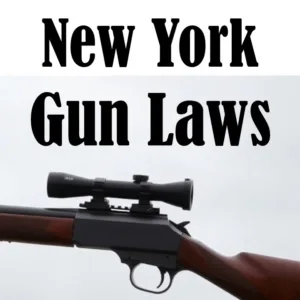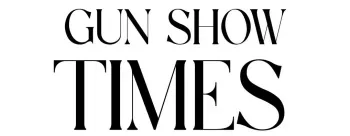New York has some of the most stringent gun laws in the United States, with comprehensive regulations on firearm purchases, carrying, restricted locations, and self-defense rights. This guide covers the key aspects of New York’s gun laws to help residents and visitors stay informed and compliant.
New York Gun Laws Overview

Purchasing Firearms in New York
New York has strict requirements for firearm purchases, including permits, background checks, and additional regulations for handguns, rifles, and shotguns.
Key Requirements:
- Permit to Purchase: Required for handguns. A license must be obtained before purchasing a handgun.
- Background Check: Required for all firearm purchases, including private sales, under the SAFE Act.
- Waiting Period: There is no formal waiting period, but the licensing and background check process can take weeks to months.
- Minimum Age: Federal law sets the minimum age at 18 for long guns and 21 for handguns, though New York has specific requirements based on the county.
Firearm Licensing in New York
To legally purchase and possess a handgun in New York, individuals must apply for a pistol permit.
Steps to Obtain a Pistol Permit:
- Eligibility Requirements: Applicants must be at least 21 years old, pass a background check, and meet residency requirements. Some counties may have additional requirements.
- Application Process: Submit applications to the local county licensing office with necessary documentation, fingerprinting, and fees.
- Approval Time: Processing can take several weeks to months due to thorough background checks.
- Permit Validity: Pistol permits in New York generally have no expiration but require recertification every five years under the SAFE Act.
Private Sales and Background Checks
All firearm sales, including private transactions, require background checks in New York. Licensed dealers must conduct these checks under the SAFE Act to ensure compliance with state law.
Open Carry in New York
New York prohibits open carry of handguns for civilians, even if they hold a pistol permit.
- Open Carry Restrictions: Only law enforcement officers and certain licensed security professionals may openly carry handguns.
- Rifles and Shotguns: New York has fewer restrictions on open carry for long guns outside New York City, though local ordinances may apply.
Concealed Carry in New York
New York is a “may-issue” state for concealed carry permits, with stringent requirements and approval processes for civilian applicants.
How to Obtain a Concealed Carry Permit:
- Eligibility Requirements: Applicants must be 21 or older, demonstrate good moral character, complete required firearm training, and show “proper cause” for self-defense needs.
- Training Requirement: Concealed carry applicants must complete state-mandated firearm safety and training courses.
- Application Process: Submit applications with supporting documents to the local county licensing office.
- Approval and Renewal: Permit issuance and renewal require significant documentation and justification, with approvals often left to the discretion of local authorities.
Reciprocity with Other States
New York does not recognize concealed carry permits from other states, even if a visitor has a valid permit elsewhere. Visitors to New York are subject to state firearm regulations and cannot legally carry concealed firearms within state limits.
Restricted Locations for Carrying Firearms in New York
New York has extensive restrictions on where firearms may be carried, even for permit holders.
- Schools and University Campuses: Firearms are prohibited on all K-12 school grounds and educational property.
- Government Buildings: Courthouses, police stations, and certain other government facilities restrict firearms.
- Private Property and Businesses: Property owners may prohibit firearms on their premises, and individuals must comply with posted restrictions.
- Public Transit and Events: Carrying firearms on public transportation, such as subways and buses, or at public gatherings, is prohibited.
Assault Weapons and Magazine Capacity in New York
New York’s SAFE Act imposes strict regulations on assault weapons and magazine capacity.
- Assault Weapons Ban: Certain firearms are classified as assault weapons based on their features, and individuals must register or modify these firearms to comply with the law.
- Magazine Capacity: New York limits magazine capacity to 10 rounds, with certain exceptions for law enforcement and military personnel.
Self-Defense Laws in New York: Duty to Retreat and Castle Doctrine
New York has a duty to retreat policy for self-defense in public spaces, meaning individuals must attempt to retreat from a threat before using deadly force unless they are in their home.
Duty to Retreat
New York requires individuals to retreat if safely possible before resorting to force in public places. Deadly force may be used only if retreat is not an option and there is an immediate threat of serious harm.
Castle Doctrine
Under New York’s Castle Doctrine, individuals may use reasonable force, including deadly force, within their home to defend against an intruder if they face an immediate threat.
Firearms Prohibited Persons in New York
New York prohibits certain individuals from owning or possessing firearms based on federal and state restrictions.
- Felony Convictions: Individuals with felony convictions are prohibited from firearm possession.
- Domestic Violence Convictions: Those convicted of domestic violence or with active restraining orders are restricted from firearm possession.
- Mental Health Restrictions: Individuals with certain mental health commitments or judgments may be prohibited from owning firearms.
- Drug and Substance Abuse: New York enforces additional restrictions for individuals with certain drug-related offenses.
Penalties for Violating Gun Laws in New York
New York imposes severe penalties for violating firearm laws, including fines, imprisonment, and permanent restrictions on gun ownership.
- Unlawful Possession: Possessing a firearm without the required permit or in violation of state law can result in criminal charges.
- Carrying in Restricted Areas: Violations of carry restrictions in schools, government buildings, or other prohibited areas can lead to fines and incarceration.
- Noncompliance with Assault Weapon or Magazine Restrictions: Failing to comply with restrictions on assault weapons or magazine capacity can result in serious legal consequences.
Conclusion: Understanding New York’s Gun Laws
New York’s gun laws are among the strictest in the U.S., requiring detailed adherence to regulations for purchasing, carrying, and self-defense. Staying informed on state laws is essential to avoid penalties and ensure lawful firearm use.
FAQs About Gun Laws in New York
1. Do I need a permit to buy a gun in New York?
Yes, New York requires a permit to purchase handguns. No permit is needed for rifles and shotguns outside of New York City.
2. Is open carry allowed in New York?
No, open carry of handguns is not permitted for civilians in New York.
3. Does New York restrict magazine capacity?
Yes, magazine capacity is limited to 10 rounds under the SAFE Act.
4. Does New York recognize out-of-state concealed carry permits?
No, New York does not recognize permits from any other states.
5. What self-defense laws apply in New York?
New York enforces a duty to retreat in public, while allowing self-defense without retreat under the Castle Doctrine at home.
